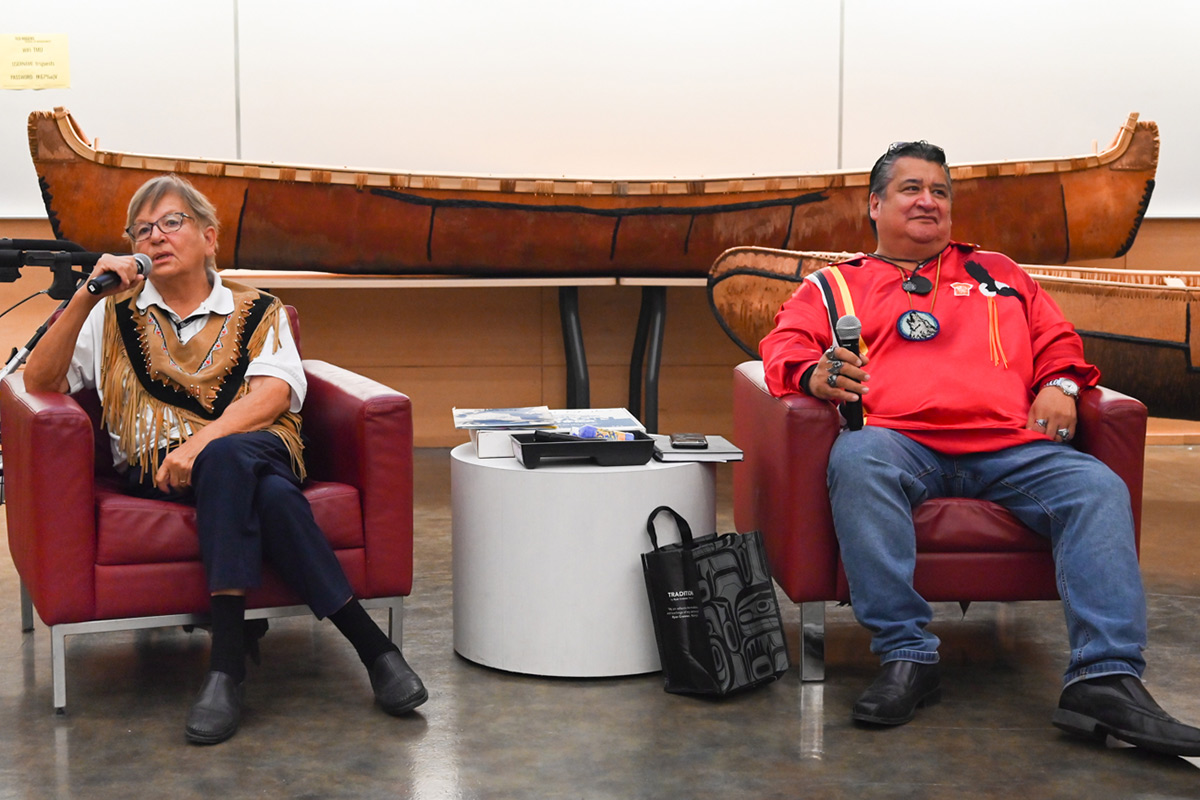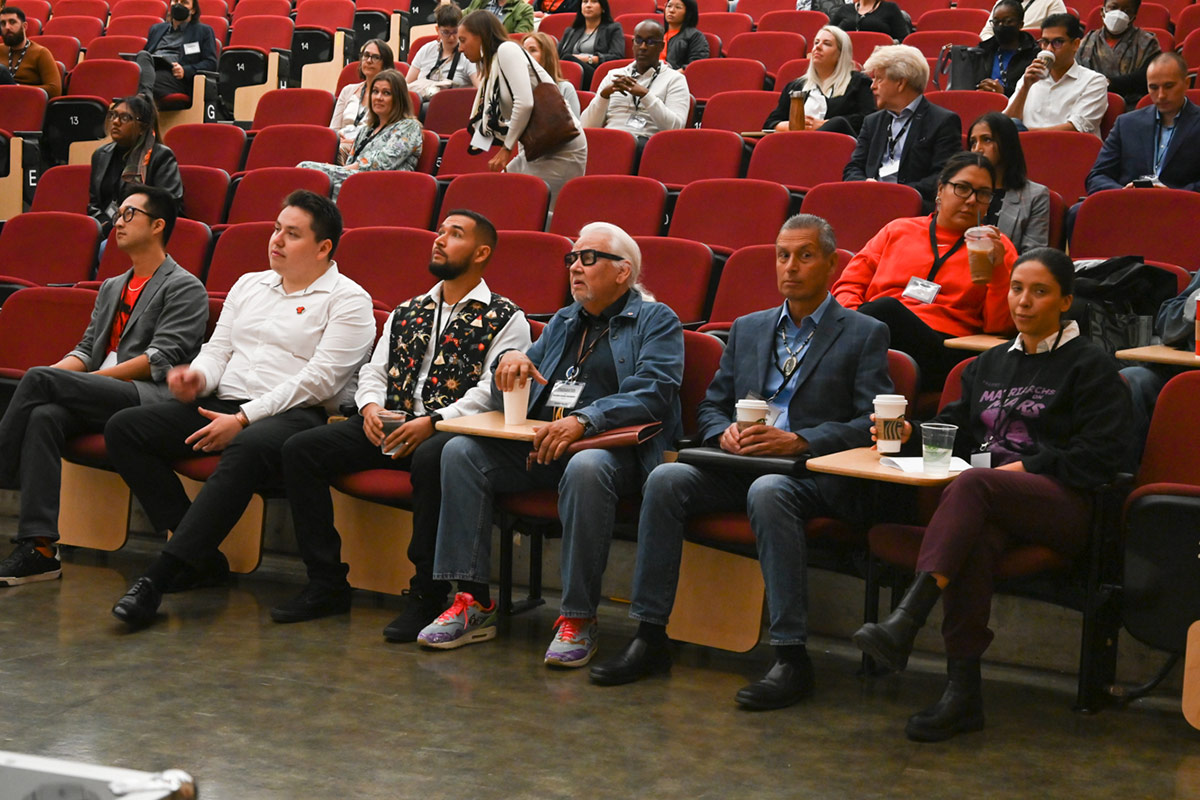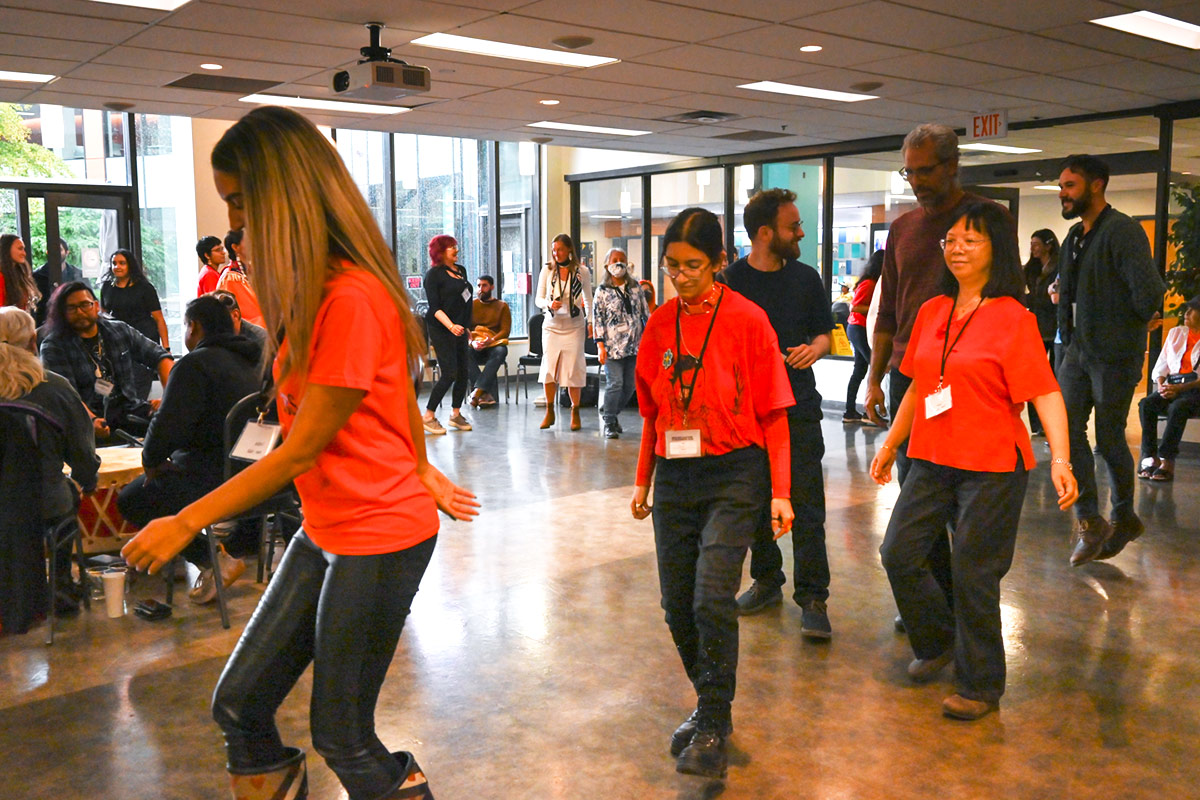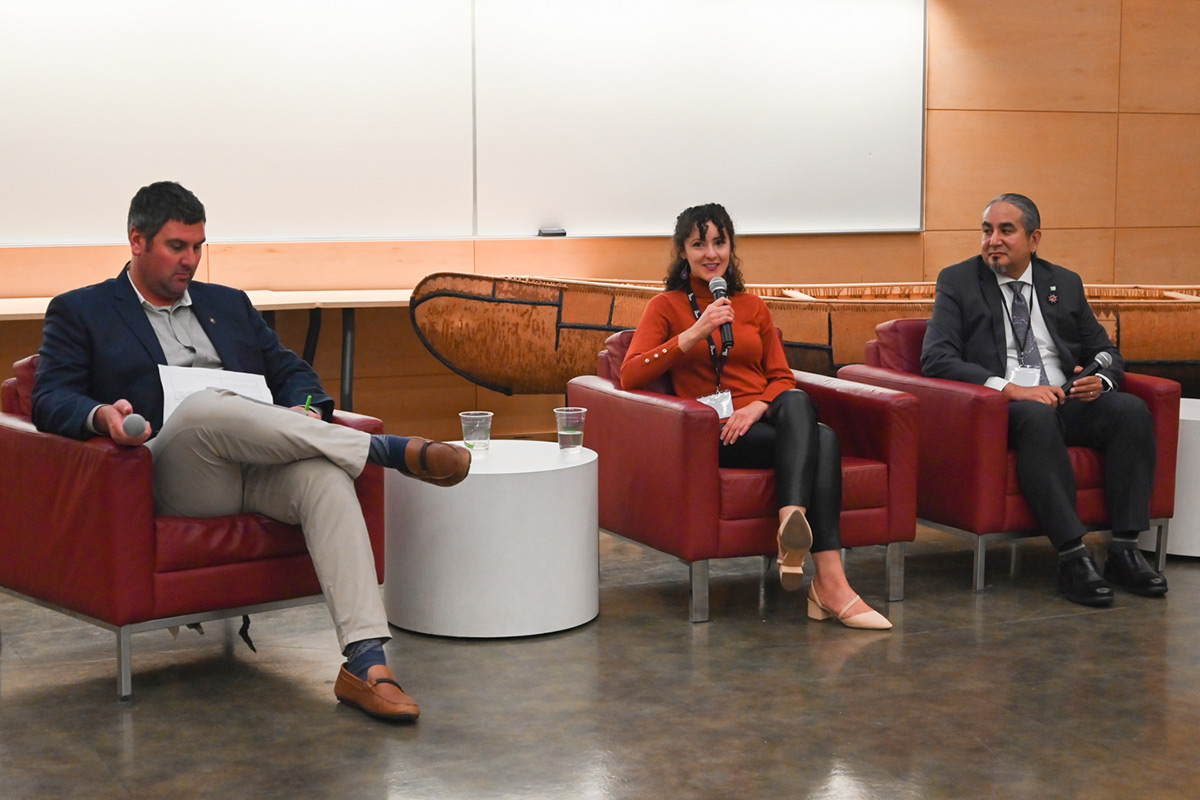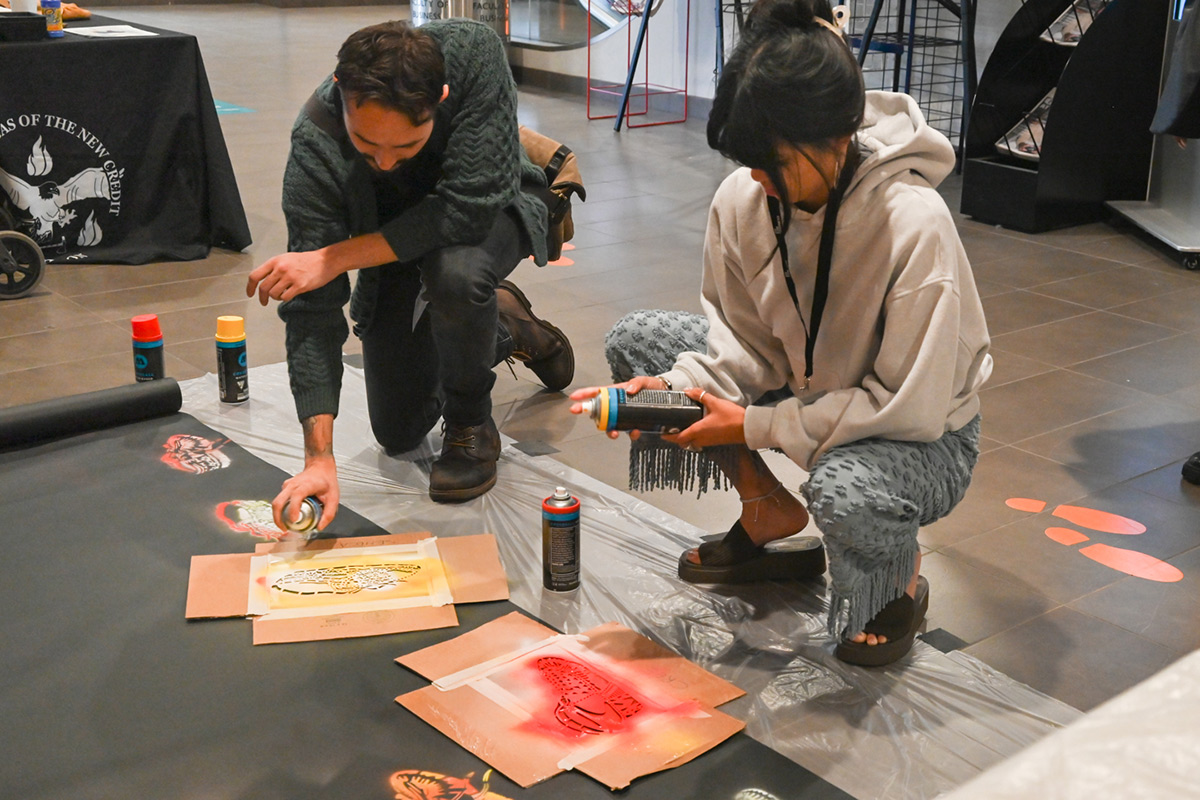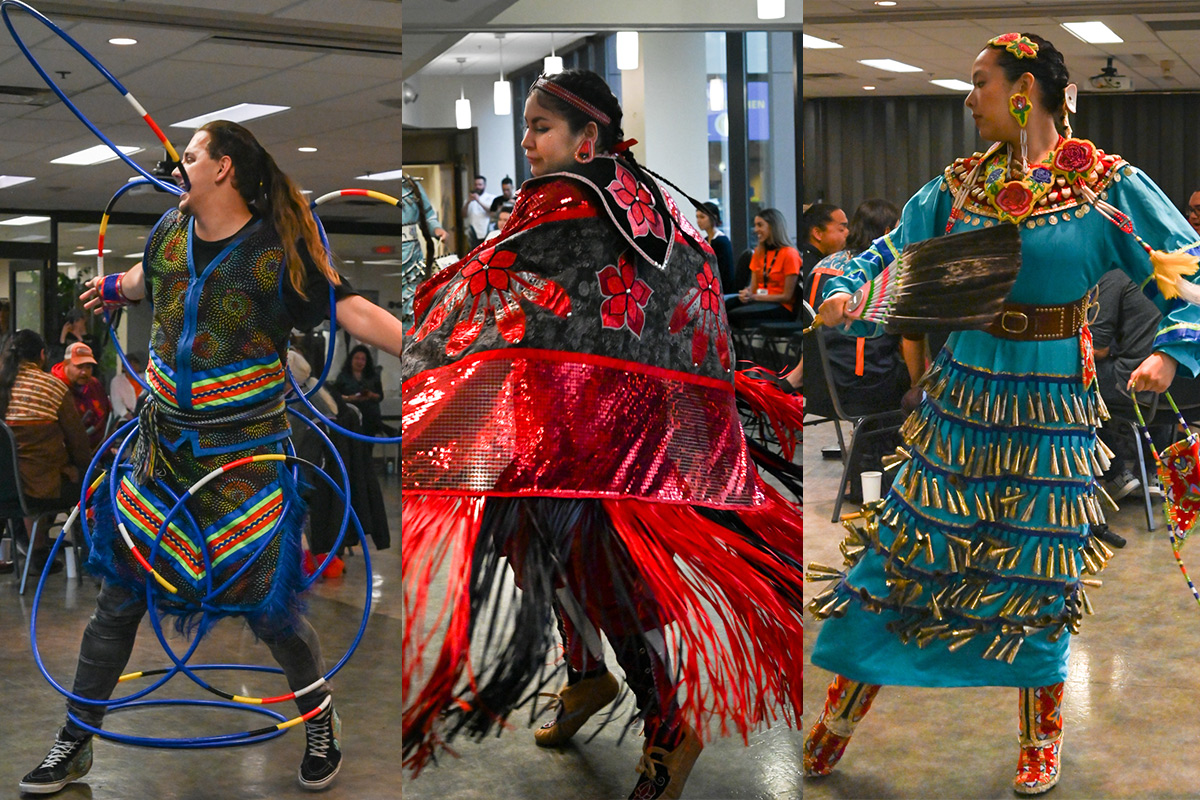Advocate

Community is tangible at the Ted Rogers School, which fosters a sense of belonging and inclusion among students, faculty and staff. Our campus often hosts events and activities to bring the university community and our business partners together, from lectures and workshops to awards and competitions, to explore shared interests. Our alumni, faculty and staff share values and pride in the work done here, which has led to the creation and implementation of inclusive initiatives, committees, student organizations and trainings. With the right tools and a supportive space, our students have actively been creating an EDI-focused environment. Our faculty and staff also are also committed to ensuring the school can be a place of belonging for all.
 Shaping the next generation of leaders
Shaping the next generation of leaders
Within the Business Career Hub, for example, an EDI committee makes recommendations to the leadership team regarding training, activities and measurement of EDI within the Hub. They also host internal events and activities like the creation of an EDI calendar that identifies significant dates globally that recognize religious and cultural events. Members of the Business Career Hub are asked to share stories or photos of how they have celebrated those holidays or events with family. They also host a weekly “Name Game” activity, where one member tells the story or history of their name. Many have shared family histories and stories.
 Raising awareness
Raising awareness
The TRSM Anti-Black Racism Awareness Committee’s mandate is to raise awareness of anti-Black racism and provide recommendations to faculty, staff and students on strategies to deal effectively and collegially with issues related to anti-Black racism in the Ted Rogers School community. Membership is drawn from all Ted Rogers School academic units. One of the committee’s responsibilities is to develop and implement an education program to raise awareness of anti-Black racism among students, staff and faculty in Ted Rogers School.
 Project highlights
Project highlights
At the second annual Carnegie Initiative Summit this year, Ted Rogers School faculty helped drive meaningful, scalable, inclusive impact by amplifying the work of changemakers in hockey. The summit discussed topics largely centering on marginalized communities, creating sustainable change and inclusion.
The Spirit Project, an initiative to support Indigenous hockey, partnered with Toronto Metropolitan University under the supervision of Dr. Cheri Bradish and Dr. Richard Norman, who will study sustainable and inclusive models and "sets of futures" specifically for Indigenous hockey communities.
This year, the Future of Sport Lab joined a new national initiative to promote visibility and engagement for women's sports in broadcast, digital and social platforms.
The Women’s Sport Initiative (WSI) is a multi-million dollar investment that will earmark 50 per cent of Canadian Tire's sponsorship spending for women’s professional sports by 2026.
As a partner, the Future of Sport Lab will receive funds to support the next generation of female leaders in sport innovation. The funding will support graduate and undergraduate students to engage in related 'gender equity in sport' insights, ideation and education, said Cheri L. Bradish, founder and managing director of the Future of Sport Lab at TMU. The program will also support more female-founded sport tech and innovation companies.

Team from Uganda (from left) Susan Alero, Simon Peter Rwakahangi and Sheila Tuti
Retail Management Director Donna Smith started a conference and case competition called Reimagining Women in Leadership, in 2020 when she was then director of the MBA. The conference had an MBA case competition. This year, the case was “Women and Remote Work: Fearless or Fear?” and was written by Smith and colleague Ron Babin. And while Ted Rogers School students competed, it was an international team from Uganda who reaped benefits from this case competition. The team from Uganda presented such a compelling solution and scenario of what was happening in Uganda that anonymous donors stepped up to fund their cause.
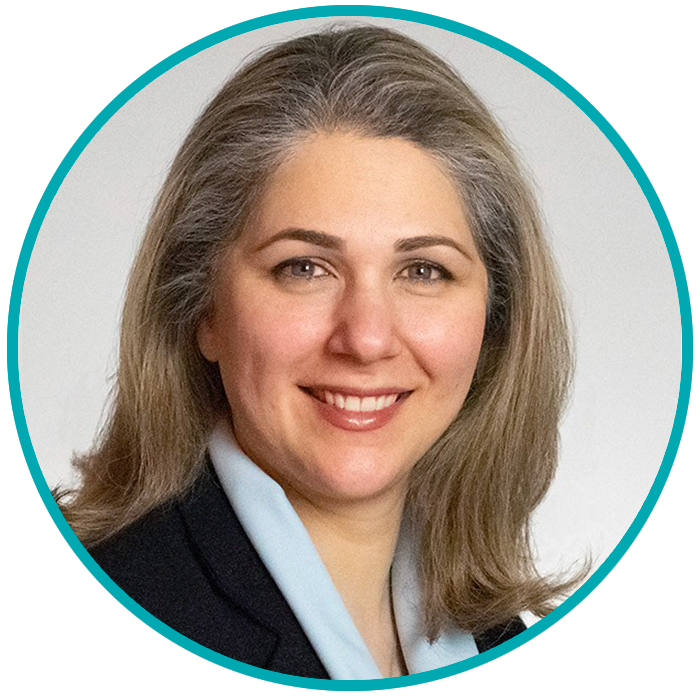
Dr. Atefeh Mashatan
Through a pilot program with Information Communications Technology Council of Canada (ICTC) and the Cybersecurity Research Lab at Ted Rogers School, female students have been given the opportunity to organize a co-op and/or start a career in cybersecurity as soon as they graduate. The Information Communications Technology Council of Canada (ICTC) and Microsoft Cybersecurity Training Pilot, provides training, certification and networking for female students looking to pursue careers in cybersecurity.
Dr. Atefeh Mashatan designed the program in conjunction with ICTC to provide women a space to connect with others in the field and hear from industry professionals, but also to show students the multiple pathways available to them inside of a career in cybersecurity.
The Inclusive Media and Design Centre created a Literary Image Description (LID) Best Practices Guide (external link, opens in new window) in partnership with Accessible Media Inc (AMI), Canadian National Institute for the Blind (CNIB), Centre for Equitable Library Access (CELA), Diaspora Dialogues (DD), led by eBound Canada and funded by the Department of Canadian Heritage. The IMDC also created a hands-on closed captioning training course (opens in new window) in English, funded by eBOUND’s Canada Book Fund.
The Inclusive Media and Design Centre developed technology for creating, curating and sharing short video narratives for various applications. My Health My Record is a healthcare management system in which patients create short audio/video narratives and organize, curate and share these with others. Visualizations of these narratives provide health care providers with insights into the patient experience between visits, supporting informed decision-making based on the user-generated data.
In 2022, the Treaty Relations in Business Education (TRIBE) student group hosted the first Reconciliation in Business Conference, in response to Canada’s Truth and Reconciliation Call to Action #92 (external link) : Business and Reconciliation. The event hosted keynote speakers on reconciliation and entrepreneurship, and panel discussions that touched on Indigenous experience across academia, Indigenous hospitality and tourism, Indigenous women in entrepreneurship and Indigenous law and governance. The conference also hosted experiential workshops, a big drum and dancing social, an Indigenous marketplace and feast.

In the Equity, Inclusion and Diversity Series, Fit for Business shines a spotlight on the transformative power of embracing diverse perspectives. Listen to the stories of change-makers, advocates and individuals championing equality, fostering inclusivity and celebrating diversity.
One of Michael Mihalicz’s first projects as Indigenous Advisor was the Indigenous Student Welcome Initiative, TMU's first faculty-wide Indigenous Admissions stream. The Welcome Initiative and awards program was the product of over a year-long collaboration between Ted Rogers School of Management, the Office of the Registrar, FCS & Indigenous Student Services and informed by best practices across Canada.
The primary goal of this initiative was to make undergraduate programs at the Ted Rogers School more attainable for Indigenous students by looking beyond grades to find suitable candidates from Indigenous communities. This process addresses systemic barriers in the existing admission system by eliminating competition in the selection and admission of Indigenous applicants to all Ted Rogers School programs. The success of this initiative is defined by the number of Indigenous students who successfully complete their program and who would otherwise not have had the opportunity to study at the Ted Rogers School.
Thanks to a generous donation from the Dean's Office, Mihalicz was able to pair this with an entrance award program that provides all incoming Indigenous students with a $1,000-$1,500 entrance award every year for the last three years.
“This award is not based on financial need or academic performance. It’s intended to help address financial barriers, but we hope will also foster a sense of community as well as serve as an acknowledgement of the value of Indigenous students in enhancing and enriching the educational and cultural experience of the educational community at TRSM,” Mihalicz says.

